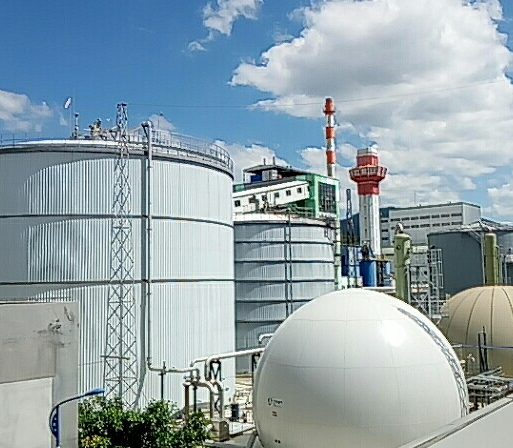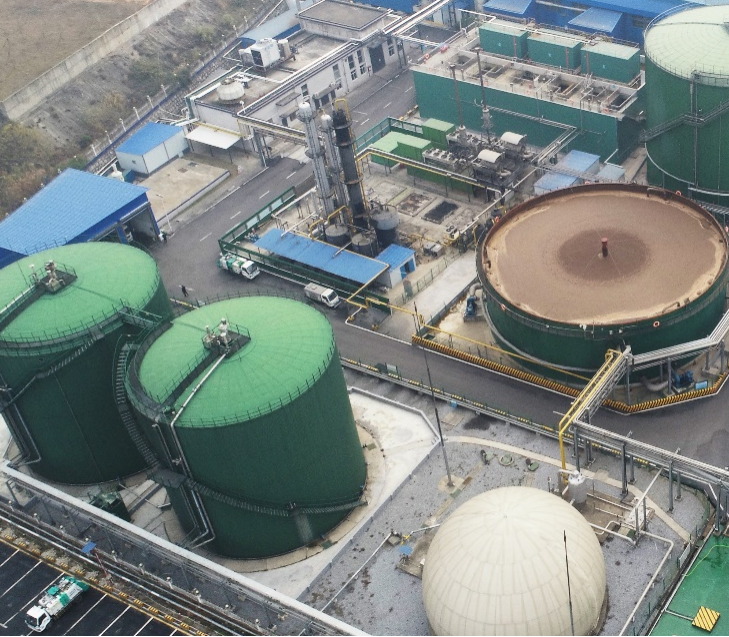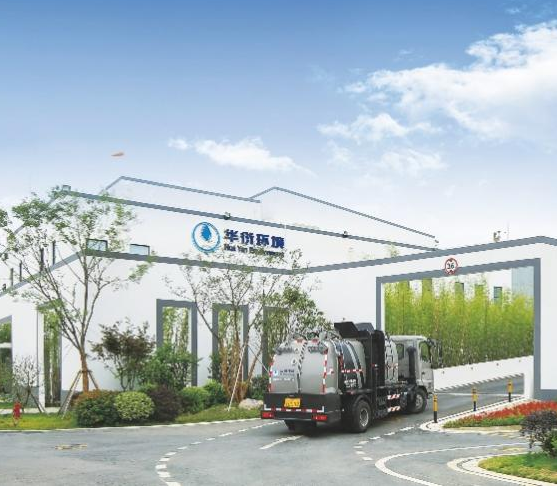Restaurant Waste
Purac has extensive engineering experience in the field of restaurant waste treatment. Since winning the bid for China's first food waste project - the first phase of Chongqing Heishi Zi Restaurant Waste Treatment Project in 2009, it has successively signed and implemented more than 50 restaurant waste treatment projects in Changsha, Xiamen, Foshan, Shijiazhuang, Chongqing, and other cities, with a treatment scale exceeding 15,000 tons/day. Both the total scale and the scale of individual projects rank at the forefront of the industry. Since 2014, it has been rated as the annual leader in anaerobic technology solutions for the solid waste industry in the E20 environmental platform's solid waste enterprise selection activities for several consecutive years.
Purac can undertake various process sections of engineering, such as pre-treatment systems, anaerobic treatment systems, biogas purification and utilization systems, and sludge treatment. Purac can also provide with a full-process solution : pre-treatment, oil recovery, anaerobic digestion, residue and slurry treatment.
The main process flow of restaurant waste treatment: raw material goes through coarse screening, shredding and removing impurities and oil, then sent to the anaerobic treatment unit. Under certain temperature conditions (thermophilic anaerobic 55±2°C, Mesophilic anaerobic 37±2°C), organic matter is decomposed in the anaerobic reactor to product biogas. The biogas can be further purified and used for power generation or as vehicle fuel. The effluent produced after anaerobic digestion is sent to the water treatment unit for treatment. The residue produced is resourced after drying or composting. During the process, heavy materials such as sand, glass, and ceramics, as well as impurities such as fibers, fabrics, and plastics, are incinerated or landfilled.
Anaerobic process can not only treat single types of organic waste such as food waste and kitchen waste but also handle multiple types of organic waste simultaneously. By adding sludge, expired food, fruit and vegetable waste, and livestock manure to food waste, one can not only achieve the benefits of project scale but also make the nutrients of the materials more balanced, the system operation more stable. The technical of synergistic anaerobic treatment of organic matter is in line with the planning concept of vein industry park and environmental protection industry park in China, which can achieve the goals of saving land and investment, and reducing operation and management costs.






